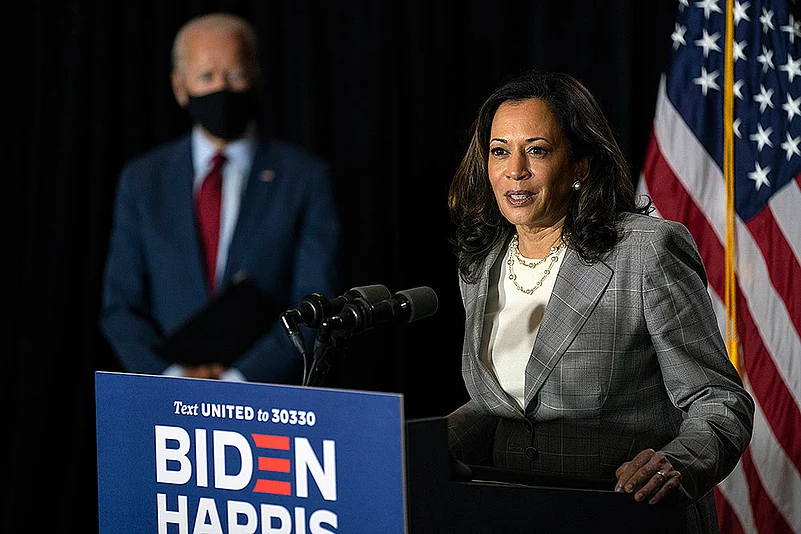By picking Kamala Harris, 55, as his running mate for the Democratic ticket, Joe Biden broke several barriers. She will be the first Black candidate and the first Indian-American to run for vice president. What is more, with the 77-year old Biden not ready for a second term, she is likely to be the presidential candidate in the next elections. All this provided the Democrats defeat Donald Trump in November.
Kamala Harris is the daughter of an Indian cancer researcher mother, Shyamala, and Jamaican economics professor father Donald J. Harris. She grew up in an activist household and took part in numerous protest demonstrations and marches for racial equality as a child. So civil and human rights are part of Kamala’s DNA.
Though India is celebrating her success, in the US she is seen as an African-American politician. It is only in recent years that her Indian side has been highlighted. Her uncle, Gopalan Balachandran, a Delhi-based strategic analysis who was earlier with the IDSA, says: “Kamala and her sister Maya are close to all of us on the Indian side of the family, and proud of their Indian heritage…but she is an African-American politician.” He said his sister raised her girls as a single mother and Shyamala had a lasting influence on her daughters. Shyamala was one of the few Indians at that time who took part in the civil rights movement. It is only now that American-Indians are coming into their own.
“The family lived in Oakland, which is largely African-American. Her neighbours were African-Americans, her friends were African-Americans, and in school, her classmates were African-Americans,” Balachandran added.
In the November elections, it is the Black votes that Biden and Harris need to pull in to defeat Donald Trump. That is the base of the Democratic Party which Kamala Harris has to woo. Her African-American roots would be a major factor in tapping this base.
But like Biden, Kamala is seen by the younger Democratic party supporters, as not progressive enough. She is a moderate, not a radical like Bernie Sanders. He was the man who appealed to the young, both Black and White.
Kamala’s record as a San Francisco district attorney as well as California’s attorney general is mixed. Many felt that she consistently batted for the police. At one time she supported a controversial initiative to prosecute parents of children not attending school. While the intention was to ensure that children not miss out on education, many felt there could have been a gentler way to enforce attendance. Harris has since regretted the decision and apologised for it. But since the George Floyd killing, Harris has hardened her stand against law enforcers. She is now vocal about the Black Lives Matter campaign and need for police reform.
Kamala Harris brings to the ticket her vast professional experience. Her debating and cross-examination skills are phenomenal. Her grilling of former attorney general Jeff Sessions was a master class. She will be let loose on Trump and is expected to do a much better job of taking on the President’s vicious attacks than Biden.
From the Modi’s government’s perspective, another term for Donald Trump is good news. A Democratic White House will be intrusive on human rights. Kashmir, the Delhi riots, NRC and CAA will be talking points. Trump had turned a blind eye to these issues. But for Biden and Harris, human rights cannot be ignored.
When foreign minister S.Jaishankar refused to meet a congressional panel last year because one of its members, Pramila Jayapal, had introduced a resolution on Kashmir, Harris tweeted that it was wrong for a “foreign government to tell Congress what members are allowed in meetings on Capitol Hill”.
But there is bipartisan support for India. With a rising and assertive China in mind, the Biden-Harris team will continue to build up New Delhi as a bulwark against Beijing. Public statements on Kashmir and the treatment of minorities will be issued. But on terrorism, Pakistan and China, the Democrats will bat for India..


























